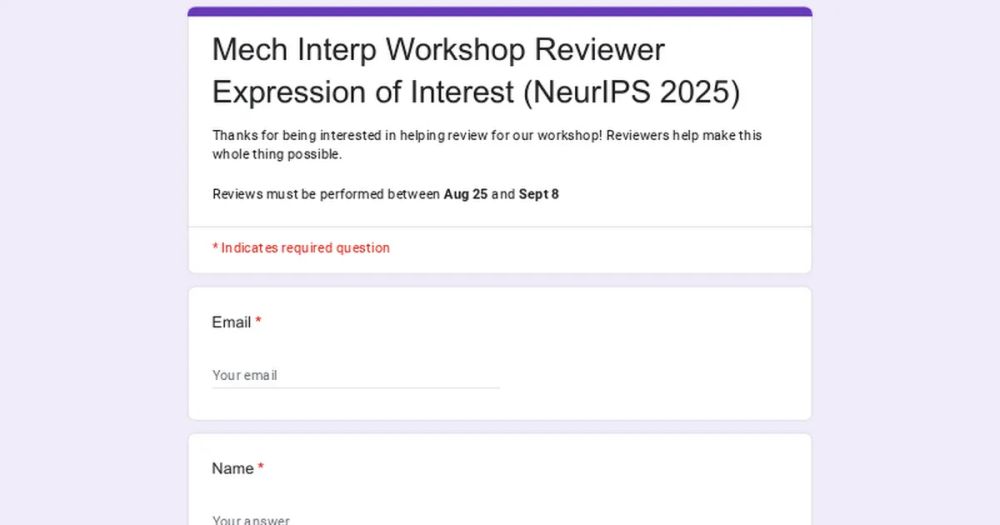See more info on our call for papers: mechinterpworkshop.com/cfp
And learn more about the workshop: mechinterpworkshop.com

See more info on our call for papers: mechinterpworkshop.com/cfp
And learn more about the workshop: mechinterpworkshop.com

Maybe! Asking questions rather than lecturing people is hardly a novel insight
But people often assume the Qs must be neutral and open-ended. It can be very useful to be opinionated! But you need error correction mechanisms for when you're wrong.

Maybe! Asking questions rather than lecturing people is hardly a novel insight
But people often assume the Qs must be neutral and open-ended. It can be very useful to be opinionated! But you need error correction mechanisms for when you're wrong.

Done right, I think its more collaborative - combining my perspective and their context to find the best advice. Better for both parties!

Done right, I think its more collaborative - combining my perspective and their context to find the best advice. Better for both parties!
The post: www.neelnanda.io/blog/51-soc...
More thoughts in 🧵

The post: www.neelnanda.io/blog/51-soc...
More thoughts in 🧵
docs.google.com/document/d/...
And check out my research sequence for more takes on the broader research process:
x.com/NeelNanda5/...

docs.google.com/document/d/...
And check out my research sequence for more takes on the broader research process:
x.com/NeelNanda5/...
www.alignmentforum.org/posts/Ldrss...

www.alignmentforum.org/posts/Ldrss...
Supervision: Papers/Ask a mentor
Sample efficiency: Reflect on *why* you were wrong
Episode length: Taste for short tasks comes faster
Supervision: Papers/Ask a mentor
Sample efficiency: Reflect on *why* you were wrong
Episode length: Taste for short tasks comes faster
blog.sentinel-team.org/p/global-ri...

blog.sentinel-team.org/p/global-ri...






